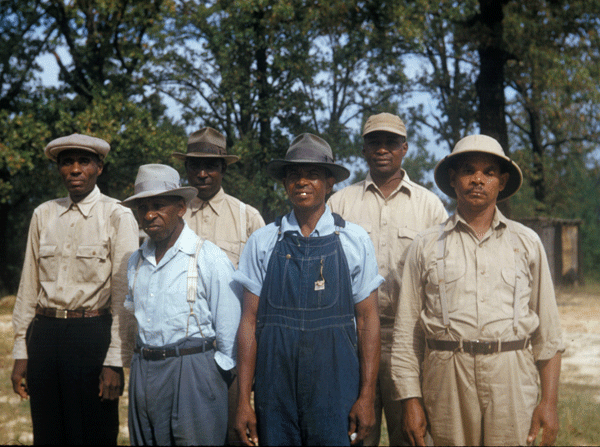Affirming the Vaccine: When Protecting Seniors Requires Staring Down Fears


Debbie Balk, Alicia Reid, and Liz Vogel all received their first dose of the COVID-19 vaccine on January 4, 2021, at the Hamilton County Health Department.
Leading by Example to Protect Seniors
“Our people are leading by example,” said Jewish Family Service CEO Liz Vogel. “By stepping up and getting the COVID-19 vaccine, we are showing others in our community that it is a safe, proactive step toward stopping the pandemic.”
The passage from 2020 to 2021 was a transition that many in our country experienced as a kind of symbolic catharsis: out with the dreaded old year; in with the promising new year. But for Vogel and Debbie Balk, Director of StarPoint Home Care (a subsidiary of Jewish Family Service), the transition was more reality than metaphor. “In an attempt to figure out how we could get our staffs at StarPoint and Jewish Family Service vaccinated,” Balk said, “I had been working closely with Liz. And on New Year’s Eve, we got an email saying that our organizations were next in line for the vaccine.”
Within the hour, Balk and Vogel found themselves immersed in the fast-paced logistics of COVID-19 vaccinations. And to ensure that the online signup would be effortless for their employees—and thereby protect their senior clients in the process—they documented every step of the registration process. Before sharing these steps, Balk customized them to best suit each StarPoint team member.
StarPoint Makes a Statement for Senior Health & Safety
Before any information about getting the vaccine was shared with employees, the first step was for leadership to step up and lead by example. StarPoint is a non-medical, in-home care service that helps seniors navigate the basic activities of daily life. With caregivers working so closely with seniors—the population most vulnerable to the coronavirus—Balk and Vogel wanted their vaccinations to make a statement. “We want our clients to know that we are putting their health, and the health of our team, front and center,” Balk declared. “And getting the vaccine means that we—as an organization—are taking this virus, and the safety of our senior clients, very seriously.” On January 4, mere days after receiving the initial email notification, Balk and StarPoint Manager Alicia Reid met up with Vogel at the Hamilton County Health Department. Despite the significance of the moment, Balk claimed the experience was uneventful. “They gave us the shot. They sent us to a conference room where we had to sit six feet apart from one another. They observed us for 15 minutes to make sure we didn’t have any bad reactions. And they sent us on our way,” she explained.
When the Vaccine Got Personal, Senior Safety Took Precedent
What may have seemed routine on the surface, however, was hardly routine on a personal level. Being a cancer survivor with a compromised immune system, Balk had to overcome concerns that the cure could do more damage than the disease. She quickly decided COVID-19 was the greater threat, not only for her, but for the seniors she is entrusted to safeguard. “I am a very strong believer in medicine and science,” she asserted, “and I wanted to protect myself, the seniors we serve, and the people I love. Getting vaccinated will mean I can visit my new niece for her first birthday in May, instead of waiting until September or October. That is an important step.”
My sister has now agreed to get the vaccine. My aunt, my dad’s sister—she’s getting it. My dad’s older cousin is getting it. And it’s all because I took a picture of my vaccine card and posted it on my Facebook page.
— Alicia Reid, Manager of StarPoint
A Grandmother Paves the Way for Enhanced Senior Safety
Reid also had trepidations that needed to be confronted. “Trust me, I didn’t want to do it,” she admitted. But after she reached out to a long-trusted source, her resistance fell away. “I called my grandma to tell her about the vaccine,” Reid recalled. “And I said, ‘I’m scared, Grandma. I don’t want to do it.’ And my grandma said, ‘Do you think that’s fair to us? When we all want to see our families? The only reason we are apart is COVID. And the only thing that can bring us back together is you stepping up and doing your part by getting the vaccine.'” Reid paused a moment before continuing. “And that’s when my grandma said, ‘I want you to know that I’m getting the vaccine.’ When she said that, it really hit me. I immediately called Debbie and told her, ‘Debbie, I’m going to get the vaccine.'”
As a promising nursing student, Reid, like Balk, believes in the validity of science. However, she also realizes that history’s pains cannot easily be papered over with the latest research. Due in part to her African American heritage, Reid senses how important it is to acknowledge the skepticism Black and Brown communities have for the medical establishment. As one example of this, a recent survey from the Pew Research Center revealed that African Americans are the least likely to get vaccinated of all the racial or ethnic groups in America. Such distrust has widespread and historical roots—most notably the infamous Tuskegee syphilis experiments carried out in Alabama by the US government from 1932 to 1972. (Tuskegee denied any treatment for syphilis to hundreds of Black men long after a cure for the disease became available.)

[Unwitting participants in the Tuskegee syphilis experiments]
The history of vaccine hesitancy in Black and Brown communities cannot and should not be ignored, but—to ensure senior safety—StarPoint’s Alicia Reid chose the vaccine over fear.
Due to Holocaust, Vaccine Fears Also Exist in Aging Jewish Population
Balk sees a direct parallel in the Jewish community. “Some of our clients are Holocaust survivors,” she said, “and because of the trauma many experienced with medical testing at Auschwitz or other concentration camps, they are wary of getting the vaccine. It’s the same in our Black and Brown communities; there is often an implicit fear of vaccines and medications because of what happened in Tuskegee and the like.” Reid agrees, and suggests this is why she is empathetic to the skeptics in her community. But she also sees herself as an advocate for true and trustworthy information. “I tell people to do their own research,” she said. “Real research—not videos on Facebook or YouTube. And I also tell them to talk to their doctor.”
Reid’s decision to get vaccinated has already paid dividends. “I got a number of our caregivers to agree to get it,” she confirmed. “My sister has now agreed to get the vaccine. My aunt, my dad’s sister—she’s getting it. My dad’s older cousin is getting it. And it’s all because I took a picture of my vaccine card and posted it on my Facebook page.”Bottom of FormBottom of Form
“If you ask me, we have a team of superstars who are willing to do what’s necessary to protect themselves and the seniors who entrust us to serve them,” Vogel concluded. “I couldn’t be prouder of our StarPoint Home Care team members, and everyone at Jewish Family Service who recently stepped up to get vaccinated.”
